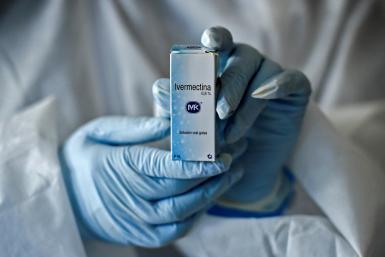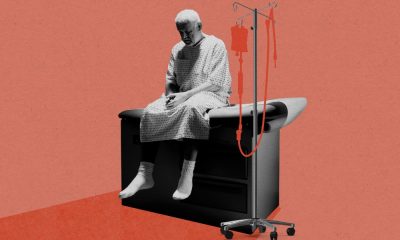The controversial horse dewormer ivermectin was once again put in the spotlight this week after researchers found that it’s not effective in preventing severe illness from the novel coronavirus. Interestingly, an alliance of doctors has placed the drug on top of its list of treatment recommendations for patients battling long COVID.
Ivermectin vs. COVID-19
A study published in the journal JAMA Internal Medicine Friday indicated that the antiparasitic drug did not prevent and treat severe COVID-19 symptoms among the nearly 500 participants of the research conducted in Malaysia in 2021.
For the study, the researchers observed and collected data from the participants who were all aged 50 and above and were at risk of suffering severe COVID-19. The participants were patients at 20 public hospitals, and they were divided into groups by the scientists.
One group took a relatively high dose of oral ivermectin for five days. Another group received treatment from doctors that helped manage their symptoms. Both groups were monitored for the progression of the disease.
The researchers noted that there was not much of a difference in the outcomes of both groups. However, they noted how a few more patients in the ivermectin group ended up needing extra oxygen than the other group. Some participants in the ivermectin group also experienced side effects, such as anemia, diarrhea, and even heart attacks.
“The higher incidence of side effects with ivermectin in our study raises concerns about the widespread use of this drug outside clinical trial setting,” Dr. Steven Lim, a lead researcher in the study, told CNN via email.
The infectious disease specialist at Raja Permaisuri Bainun Hospital in Perak, Malaysia, continued, “The public should understand that the highly touted safety profile of ivermectin is related to its use as an anti-parasitic drug. The use of ivermectin as an antiviral in COVID-19 is a totally different ball game, with notable differences in dosing, duration and mechanism of actions.”
Efficacy In The Laboratory
In January, a study from Japan reported the efficacy of ivermectin in the laboratory, stating that the drug showed an “antiviral effect” in a non-clinical setting. The researchers plan to continue examining the drug by having volunteers test its effectiveness in treating COVID-19 infection.
Meanwhile, a national study in the U.S. focused on repurposed medications also included ivermectin in the drugs to be evaluated for their potential in reducing symptoms of non-hospitalized COVID patients. Scientists behind the ACTIV-6 study, which would involve at least 15,000 patients, said they were eager to once and for all find out if ivermectin can be used as a treatment for SARS-CoV-2.
Both the U.S. Food and Drug Administration (FDA) and the Centers for Disease Control and Prevention (CDC) have issued warnings against the use of ivermectin to treat COVID-19. The FDA specifically pointed out that taking large doses of the drug could be dangerous to the health.
“Never use medications intended for animals on yourself or other people. Animal ivermectin products are very different from those approved for humans. Use of animal ivermectin for the prevention or treatment of COVID-19 in humans is dangerous,” a portion of the FDA’s statement read.
Ivermectin Recommendation
Despite the controversy surrounding the horse dewormer, a group of physicians called the Front Line COVID-19 Critical Alliance (FLCCC) included ivermectin in its “i-recover” protocol of medications, vitamins and therapies for long COVID. The group said it came up with the protocol to assist the growing number of patients dealing with lingering symptoms of COVID-19.
Ivermectin was classified by the group as first-line therapy, along with prednisone, naltrexone, omega-3 fatty acids, and vitamin D. According to the members of the alliance, since there is a lack of clinical treatment trials of the post-COVID syndrome, they made the “i-recover” recommendations “based on the pathophysiologic mechanisms of COVID-19 and post-viral illnesses” and their “collective experience observing profound and sustained clinical responses.”
However, medical workers, especially doctors treating SARS-CoV-2 patients at hospitals, quickly voiced their concerns over the recommendations. One of them, Seattle-based ICU doctor Nick Mark, took to social media to call out the alliance for its allegedly “unethical” move.
“What concerns me is FLCCC presenting ‘protocols’ as proven treatments for long COVID. Throwing 20 medications (9 are prescription) at a problem with minimal (or no) evidence is irresponsible. As we will see, this is both unethical & likely harmful,” he wrote on Twitter.
In an interview with MedPage Today, Dr. Mark reiterated his stand on the FLCCC’s recommendations, saying they are “tremendously dangerous and unethical.” He added that instead of turning to the protocol, patients should contact physicians for help in dealing with long COVID symptoms.
















